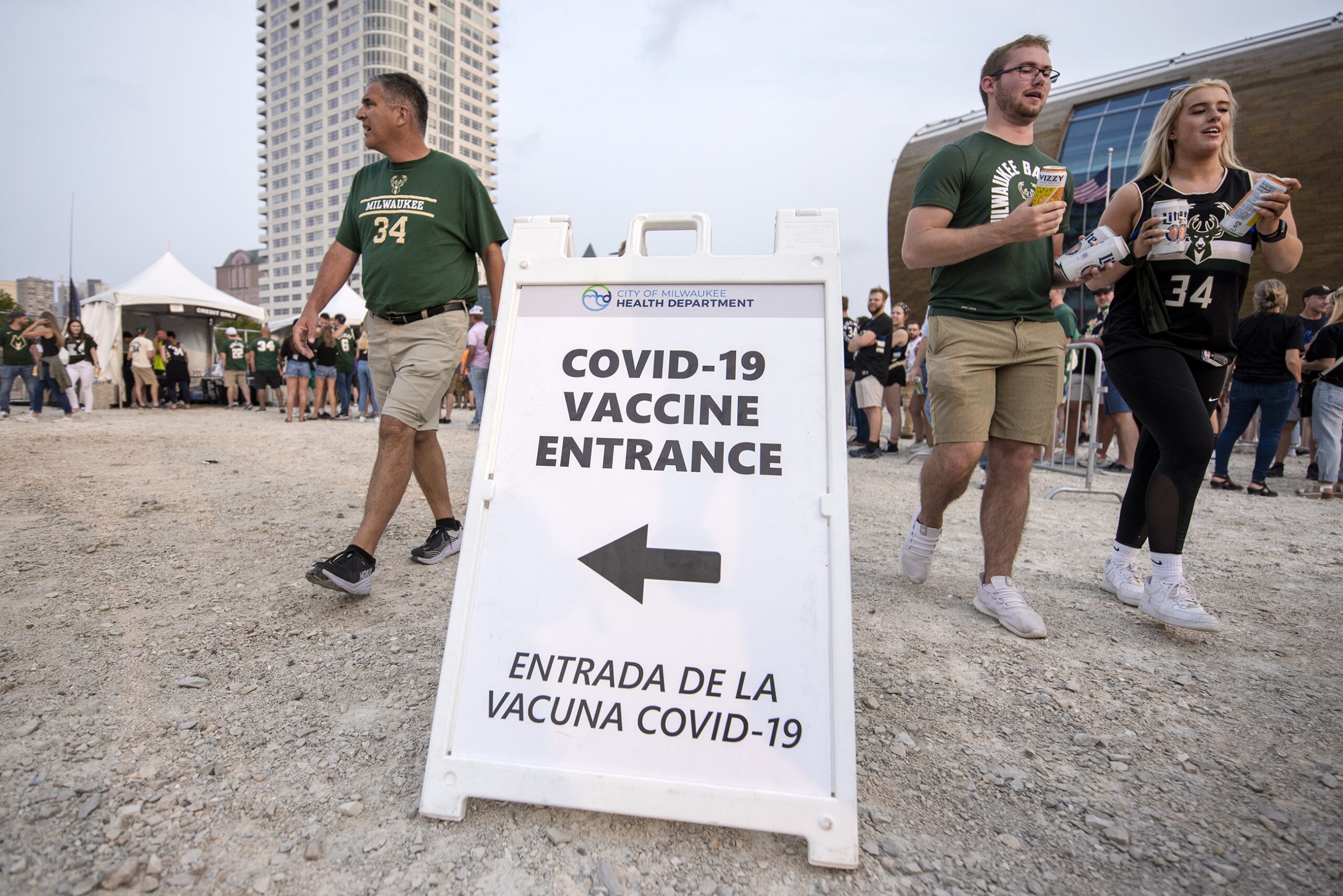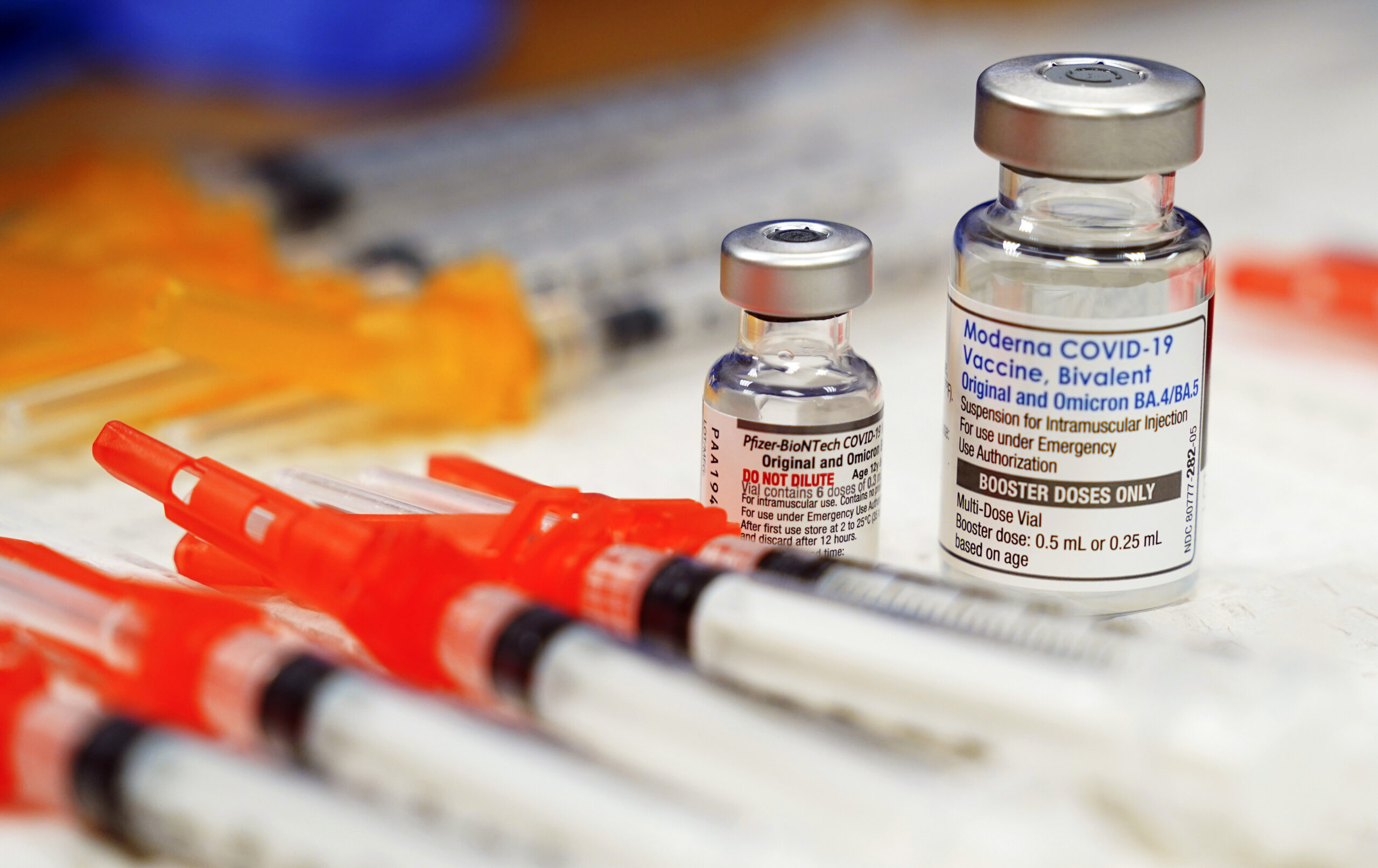Wisconsinites who haven’t gotten a COVID-19 vaccine yet can receive $100 for getting the first dose of a vaccine from an in-state provider, Gov. Tony Evers announced Monday.
Anyone who’s eligible for the vaccine can receive a $100 gift card if they get the shot between Aug. 20 and Labor Day. The $100 will help provide support to people who want to get vaccinated, but can’t get transportation, child care or time off of work to do so, according to the governor’s office.
The program is part of the fight against the delta variant, said Wisconsin Department of Health Services Secretary Karen Timberlake.
News with a little more humanity
WPR’s “Wisconsin Today” newsletter keeps you connected to the state you love without feeling overwhelmed. No paywall. No agenda. No corporate filter.
The delta variant is the dominant strain of the coronavirus that has lead to a drastic increase in cases and hospitalizations of the unvaccinated. Health officials say the longer people stay unvaccinated, the more the virus will mutate.
“COVID-19 is continuing to spread and mutate into highly transmissible variants like the Delta variant,” Timberlake said in a press release. “Let’s not give COVID-19 the opportunity to keep mutating.”
The incentive comes at the same time that Pfizer’s COVID-19 vaccine has received full approval from the U.S. Food and Drug Administration following an emergency use authorization granted late last year.
“We all need to step up and stop the spread, and our COVID-19 vaccines are the best tools we have to do just that,” Evers said.
People age 12 and up are eligible for the free COVID-19 vaccines.
Residents who get vaccinated between Aug. 20 and Sept. 6 can go to 100.wisconsin.gov to claim their gift card. Parents or guardians will have to fill out the form for people who haven’t turned 18. After that, gift cards are expected to be mailed out within six weeks. People vaccinated before Aug. 20 are not eligible for the $100.
Wisconsin joins numerous other states that have offered incentives to increase uptake of the COVID-19 vaccines. Ohio, for example, offered a lottery earlier in the summer to people who got vaccinated, though research released following the lottery found no connection between the incentive and increased vaccination rates.
Financial incentives can be appealing, but “multiple strategies will be necessary to increase population immunity,” according to an article in the New England Journal of Medicine.
“Though a well-designed incentive program could boost vaccination rates in the short term, there are likely to be significant hiccups in implementation, and delivering timely rewards flawlessly would be key to program effectiveness and credibility,” the article states.
Around 54 percent of Wisconsin’s population has gotten at least one vaccine dose, according to DHS data.
Wisconsin Public Radio, © Copyright 2025, Board of Regents of the University of Wisconsin System and Wisconsin Educational Communications Board.






